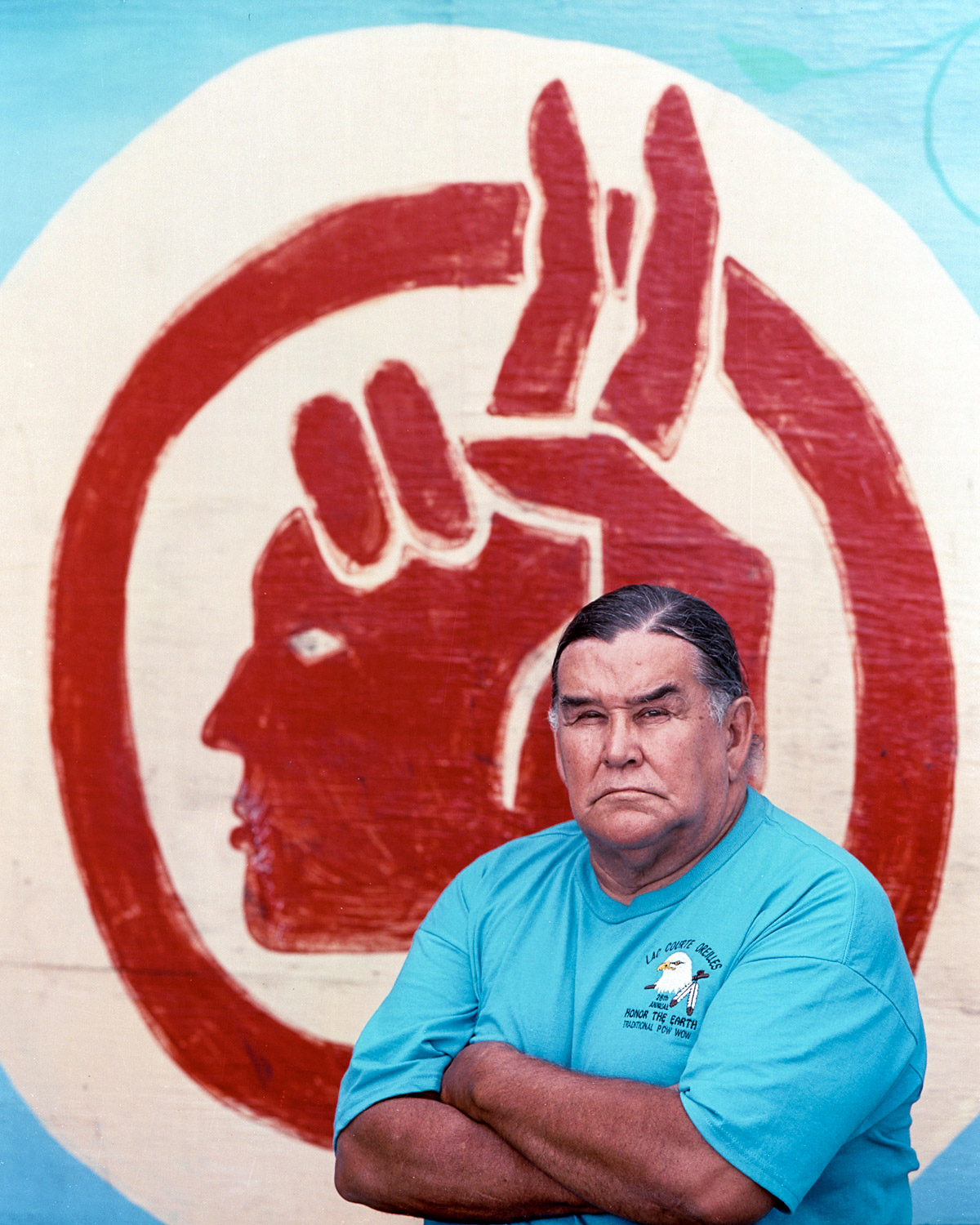Indianz.Com > News > People’s World: Indian rights activist Clyde Bellecourt passes on
Clyde Bellecourt, Indigenous rights warrior, journeys to Spirit World at 85
Thursday, January 20, 2022
People's World
An intrepid warrior, a tireless advocate for Indigenous rights, the last of the Old Guard of the American Indian Movement, a peerless paladin for the cause of Native liberation, fearless fighter confronting racism on the frontlines: Clyde Bellecourt was all of these and more.
Bellecourt passed away on Tuesday, January 11, at age 85 at his home in Minneapolis, Minnesota.
His was a life filled with triumph and tragedy for the “Indigenous cause.” He was Anishinaabe (Ojibwe), born and raised on the land of the White Earth Nation in northern Minnesota on May 8, 1936, the seventh of twelve children. At an early age, he was imbued with a sense of rage at the historic mistreatment and oppression of Native Americans in general and his parents in particular.
This legacy impelled him to a life of activism fighting the centuries of oppression of Indigenous people. In 1968, he was one of the co-founders of the American Indian Movement (AIM), along with Eddie Benton-Banai, Russell Means, Dennis Banks, and others. In those days, AIM was formed to combat police brutality against Native residents in Minneapolis.

A wake service was held Friday evening at the White Earth Indian Reservation, and Saturday morning a traditional Ojibwe funeral service was held, followed by the burial. A cruel irony of his passing is that George Floyd was barbarically murdered by Minneapolis police 53 years after Clyde founded AIM to stop police brutality against Indigenous people in the very same city. This racist murder took place just a few block from Clyde’s home. Clyde’s voice and legacy shall continue to resonate against racism and the oppression of humanity throughout the world.A strong leader in the civil rights movement & elder for Indigenous people has walked on to join the ancestors.
— IllumiNative (@IllumiNative) January 12, 2022
Clyde Bellecourt (White Earth Nation) Neegon-we-waywedon (The Thunder Before The Storm) co-founded #AIM which held major national protests in the 60s and 70s. pic.twitter.com/AXJLeEHzSq
Albert Bender is a Cherokee activist, historian, political columnist, and freelance reporter for Native and Non-Native publications. He is currently writing a legal treatise on Native American sovereignty and working on a book on the war crimes committed by the U.S. against the Maya people in the Guatemalan civil war He is a consulting attorney on Indigenous sovereignty, land restoration, and Indian Child Welfare Act (ICWA) issues and a former staff attorney with Legal Services of Eastern Oklahoma (LSEO) in Muskogee, Oklahoma.
This article originally appeared on People's World. It is published under a Creative Commons license.
Search
Filed Under
Tags
More Headlines
Native America Calling: Tribes vie for better access to traditional plants
Senate committee schedules confirmation hearing for Interior nominee
Fact Sheet: Department of Health and Human Services to undergo ‘dramatic restructuring’
Press Release: Department of Health and Human Services to undergo ‘dramatic restructuring’
Native America Calling: The new Social Security reality for Native elders
Montana Free Press: Hip-hop artist Foreshadow celebrates latest release
Cronkite News: Bill creates alert system for missing and murdered relatives
Bureau of Indian Affairs approves HEARTH Act regulations for Mohegan Tribe
House Subcommittee on Indian and Insular Affairs sets field hearing for self-determination anniversary
Native America Calling: Sometimes, COVID doesn’t go away
Native America Calling: The changing landscape for subsistence hunting and fishing
Press Release: AIHEC ‘deeply concerned’ about closure of Department of Education
Press Release: Oklahoma Indian Gaming Association weighs in on sports betting legislation
Press Release: Sen. Mike Rounds (R-South Dakota) calls for commission on crime in Indian Country
Press Release: Sen. Schatz (D-Hawaii) criticizes closure of Department of Education
More Headlines
Senate committee schedules confirmation hearing for Interior nominee
Fact Sheet: Department of Health and Human Services to undergo ‘dramatic restructuring’
Press Release: Department of Health and Human Services to undergo ‘dramatic restructuring’
Native America Calling: The new Social Security reality for Native elders
Montana Free Press: Hip-hop artist Foreshadow celebrates latest release
Cronkite News: Bill creates alert system for missing and murdered relatives
Bureau of Indian Affairs approves HEARTH Act regulations for Mohegan Tribe
House Subcommittee on Indian and Insular Affairs sets field hearing for self-determination anniversary
Native America Calling: Sometimes, COVID doesn’t go away
Native America Calling: The changing landscape for subsistence hunting and fishing
Press Release: AIHEC ‘deeply concerned’ about closure of Department of Education
Press Release: Oklahoma Indian Gaming Association weighs in on sports betting legislation
Press Release: Sen. Mike Rounds (R-South Dakota) calls for commission on crime in Indian Country
Press Release: Sen. Schatz (D-Hawaii) criticizes closure of Department of Education
More Headlines
